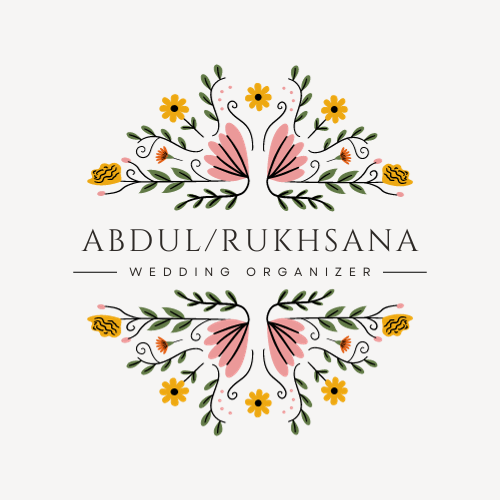
Pre-marital counselling
Pre-marital counselling is a valuable service offered by various organizations, including religious institutions, to assist couples in preparing for marriage. Its primary purpose is to provide guidance, support, and tools to help couples build a strong foundation for a healthy and successful marriage.
Here’s a comprehensive overview of pre-marital counselling:
1. Purpose and Goals:
– Communication:
Improve communication skills to enhance understanding and resolve conflicts.
– Conflict Resolution:
Teach effective conflict resolution techniques to handle disagreements constructively.
– Expectations:
Help couples identify and manage realistic expectations for marriage.
– Roles and Responsibilities:
Discuss roles and responsibilities within the marriage, considering cultural and religious aspects.
– Financial Management:
Provide guidance on financial planning, budgeting, and managing shared finances.
– Family Planning:
Address family planning, including discussions about children, parenting, and family dynamics.
– Spiritual and Religious Alignment:
For religiously affiliated counselling, ensure couples are spiritually aligned and understand the religious obligations of marriage.
2. Process:
– Assessment:
Couples may be asked to complete questionnaires or assessments to identify strengths and areas of improvement.
– Individual and Joint Sessions:
Counselling can include individual sessions for each partner and joint sessions to work on shared issues.
– Topics: Various topics are covered, including communication, intimacy, values, and future goals.
– Homework Assignments:
Couples may be given assignments or exercises to practice what they’ve learned between sessions.
– Duration:
The number of sessions and duration can vary, but it typically involves several meetings over a few months.
3. Benefits:
– Improved Communication: Couples learn to express themselves effectively and listen actively to each other.
– Conflict Resolution:
Skills are developed to handle conflicts in a healthy and constructive manner.
– Strengthened Bond:
Couples build a deeper emotional connection and understanding.
– Realistic Expectations:
Counselling helps align expectations and reduce unrealistic or idealized views of marriage.
– Enhanced Problem-Solving:
Couples acquire problem-solving skills that can be applied to various life situations.
– Conflict Prevention:
Identifying potential issues and addressing them proactively can prevent future conflicts.
4. Cultural and Religious Considerations:
– Religious Counselling:
For couples from religious backgrounds, pre-marital counselling often incorporates religious teachings and principles. – Cultural Sensitivity:
Counselors should be sensitive to the cultural norms and practices of the couples they are working with.
– Customization:
Counselling can be tailored to address specific cultural and religious concerns.
5. Who Provides Pre-Marital Counselling:
– Religious Leaders: Imams often provide religious-based pre-marital counselling.
– Licensed Therapists:
Marriage and family therapists or counselors may offer secular pre-marital counselling.
– Community Organizations:
Some non-religious community organizations also offer pre-marital counselling services.
6. Accessibility:
– In-Person and Online:
Counselling can be conducted in-person or virtually through video conferencing, making it accessible to a wider audience.
7. Confidentiality:
Pre-marital counselling sessions are typically confidential, allowing couples to discuss sensitive topics openly. Pre-marital counselling is a proactive step that many couples take to strengthen their relationship and ensure a smoother transition into married life. It equips them with valuable skills and knowledge to navigate the challenges and joys of marriage successfully. Couples considering marriage, especially those from religious backgrounds, are encouraged to explore pre-marital counselling options to enhance their relationship and marital readiness.
1. Purpose and Goals:
– Communication:
Improve communication skills to enhance understanding and resolve conflicts.
– Conflict Resolution:
Teach effective conflict resolution techniques to handle disagreements constructively.
– Expectations:
Help couples identify and manage realistic expectations for marriage.
– Roles and Responsibilities:
Discuss roles and responsibilities within the marriage, considering cultural and religious aspects.
– Financial Management:
Provide guidance on financial planning, budgeting, and managing shared finances.
– Family Planning:
Address family planning, including discussions about children, parenting, and family dynamics.
– Spiritual and Religious Alignment:
For religiously affiliated counselling, ensure couples are spiritually aligned and understand the religious obligations of marriage.
2. Process:
– Assessment:
Couples may be asked to complete questionnaires or assessments to identify strengths and areas of improvement.
– Individual and Joint Sessions:
Counselling can include individual sessions for each partner and joint sessions to work on shared issues.
– Topics: Various topics are covered, including communication, intimacy, values, and future goals.
– Homework Assignments:
Couples may be given assignments or exercises to practice what they’ve learned between sessions.
– Duration:
The number of sessions and duration can vary, but it typically involves several meetings over a few months.
3. Benefits:
– Improved Communication: Couples learn to express themselves effectively and listen actively to each other.
– Conflict Resolution:
Skills are developed to handle conflicts in a healthy and constructive manner.
– Strengthened Bond:
Couples build a deeper emotional connection and understanding.
– Realistic Expectations:
Counselling helps align expectations and reduce unrealistic or idealized views of marriage.
– Enhanced Problem-Solving:
Couples acquire problem-solving skills that can be applied to various life situations.
– Conflict Prevention:
Identifying potential issues and addressing them proactively can prevent future conflicts.
4. Cultural and Religious Considerations:
– Religious Counselling:
For couples from religious backgrounds, pre-marital counselling often incorporates religious teachings and principles. – Cultural Sensitivity:
Counselors should be sensitive to the cultural norms and practices of the couples they are working with.
– Customization:
Counselling can be tailored to address specific cultural and religious concerns.
5. Who Provides Pre-Marital Counselling:
– Religious Leaders: Imams often provide religious-based pre-marital counselling.
– Licensed Therapists:
Marriage and family therapists or counselors may offer secular pre-marital counselling.
– Community Organizations:
Some non-religious community organizations also offer pre-marital counselling services.
6. Accessibility:
– In-Person and Online:
Counselling can be conducted in-person or virtually through video conferencing, making it accessible to a wider audience.
7. Confidentiality:
Pre-marital counselling sessions are typically confidential, allowing couples to discuss sensitive topics openly. Pre-marital counselling is a proactive step that many couples take to strengthen their relationship and ensure a smoother transition into married life. It equips them with valuable skills and knowledge to navigate the challenges and joys of marriage successfully. Couples considering marriage, especially those from religious backgrounds, are encouraged to explore pre-marital counselling options to enhance their relationship and marital readiness.
